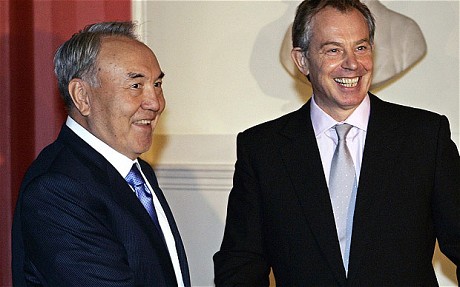Gaia and all that
I have been trying for the last few days to discover a coherent logic towards my feelings on man’s relationship with his environment. This is proving not to be simple.
The process started when I heard on World Service radio a gentleman from the International Panel on Climate Change discussing their latest report. As you know, I tend to accept the established opinion on climate change, and rather take the view that if all our industrial activity were not affecting the atmosphere, that would be strange.
But what struck me was that the gentleman said that a pause in warming for the last fifteen years was not significant, as fifteen years was a blip in processes that last over millennia.
Well, that would certainly be very true if you are considering natural climate change. But we are not – we are considering man-made climate change. In terms of the period in which the scale of man’s industrial activity has been having a significant impact on the environment, surely fifteen years is a pretty important percentage of that period? Especially as you might naturally imagine the process to be cumulative – fifteen years at the start when nothing much happened would be more explicable.
Having tucked away that doubt, I started to try to think deeper. Man is, of course, himself a part of nature. Anything man does on this planet is natural to this planet. I do not take the view man should not change his environment – otherwise I should not be sitting in a house. The question is rather, are we inadvertently making changes to the environment to our own long term detriment?
That rejection of what you might call the Gaia principle – that the environmental status quo is an end in itself – has ramifications. It is hard to conceptualise our relationship with gases or soil, but easier in terms of animals. I am not a vegetarian – I am quite happy that we farm and eat cattle, for example – and you might argue that the cattle are pretty successful themselves, symbiotic survivors of a kind. Do I think other species have a value in themselves? Is there any harm in killing off a species of insect, other than the fact that biodiversity may be reduced in ways that remove potential future advantages to man, or there may be knock on consequences we know not of that damage man somehow? I am not quite sure, but in general I seem in practice to take the view that exploitation of other species and substantial distortion of prior ecological balance to suit men’s needs is fine, so presumably the odd extinction is fine too, unless it damages man long term.
I strongly disapprove of hurting animals for sport, and want to see them have the best quality of life possible, preferably wild. But I like to eat and wear them. I am not quite sure why it is OK to wear animal skin on our feet or carry it as a bag, but not to wear “fur”. What is the difference, other than that leather has had the hair systematically rubbed off as part of the process of making it? A trivial issue, but one that obviously relates to the deeper questions.
Yes I draw a distinction between animals which are intelligent and those which are not. I would not eat whale or dolphin. But this does not seem entirely logical – animal intelligence and sensibility is evidently a continuum. Many animals mourn, for example. The BBC World Service radio (my main contact with the outside world at present – I have just today found my very, very weak internet connection just about works if I try it at 5am) informed me a couple of days ago that orang-utans have the ability to think forward and tell others where they will be the next day. Why cattle and fish are daft enough to eat is hard to justify.
I quite appreciate the disbenefits to man of radically changing his environment, even if it could be done without long term risk to his existence – the loss of beauty, of connection to seasons and forms of behaviour with which we evolved. But I regard those as important only as losses to man, not because nature is important intrinsically. In short, if I thought higher seas, no polar bears and no glaciers would not hurt man particularly, I don’t suppose I would have much to say against it. I fear the potential repercussions are too dangerous to man. At base, I don’t actually care about a polar bear.
